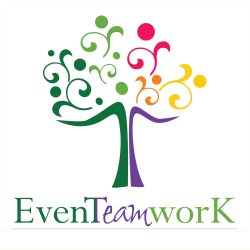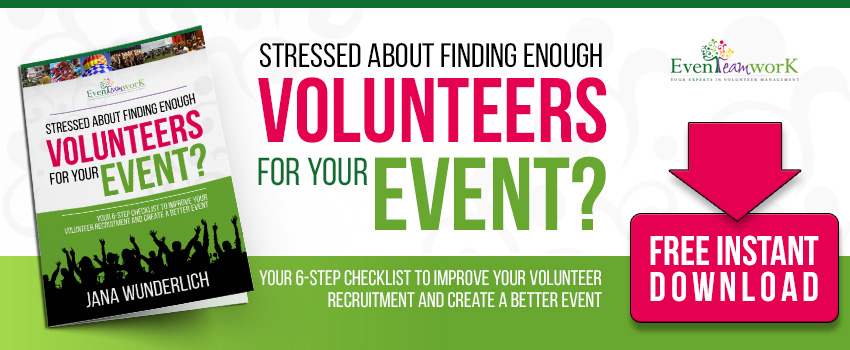Volunteer recruitment is the most obvious part of the volunteer management process. That is likely the reason why it is often interchangeably referred to as volunteer management.
Volunteer management however is a lot more complex with planning, engagement, training, support and communication. Volunteer recruitment is a part of this system – a crucial part of course in ensuring we get people involved with our event. Understanding its interdependency with the other areas of volunteer management is the key to succeed with volunteer recruitment.
The recruitment process can be challenging and stressful as many events heavily rely on volunteers but struggle with attracting enough volunteers. I have put together a few tips to help boost volunteer recruitment for your next event.
1. Preparation
Planning your recruitment is essential. Otherwise the recruitment drive is random, likely resulting in a poor outcome. It is key to plan how people will reach you and sign up. You can have the best recruitment call in place but if you don’t have an effective registration process you will lose people along the way before they even register.
Make registering easy. If you put yourself in the shoes of the potential volunteer during the process, you will be able to identify any obstacles that may prevent people from signing up. You could also test your process with a few colleagues.
Beware that the devil is in the detail. Think of a clearly structured volunteer registration page, an easy-to-navigate form and a phone number available for people to call if they encounter difficulties as a great foundation for your volunteer recruitment.
2. Roles
It is very common in the event industry to manage volunteers on a task by task basis rather than creating roles. Unfortunately, the more basic the role the less meaningful it is to the volunteer. Consider that the more importance you put on a role, the more importance a volunteer will put on its execution.
People are looking to assist events and organisations in a meaningful way. In addition, often people who volunteer are highly skilled in their professions. Most of these skills are transferable, so why not tap into this resource of expertise if it satisfies the event’s and the volunteer’s needs at the same time?
Creating meaningful roles will make roles more attractive for recruitment but also create a higher volunteer engagement, which will impact the overall visitor experience.
3. Your Offer
Your offer determines whom you attract as a volunteer. Incentives can be part of your offer but the most important is the experience you offer to a volunteer. In other terms what the volunteer will get out of volunteering at your event. This can differ from person to person but generally this may include skill development, being involved with a cause they care about, pro bono skilled work, meeting people and numerous others.
Consider the volunteer roles you need to fill and who would be your ideal person to fill these. Your ideal person may be part of a specific interest group or a specific industry. And your ideal person may be looking for different experiences and incentives than what you are currently offering.
Considering your target volunteers and their needs will help you create an offer that if delivered will keep volunteers motivated and committed to your event.
4. Channels
With email being less and less effective for recruitment conversations, it seems obvious to turn to social media. Social media hugely assists volunteer recruitment as it opened up opportunities to target specific groups, interests and locations.
However, it is also important to review where you find your ideal target market. There may be easier ways to reach them more effectively at a local club or at an expo for example.
Choosing the relevant channels will save you time and allows you to craft a tailored message.
5. Communication
Communication is key, both to events and to working with people. The more you can communicate and keep people informed along the way, the better engagement you will achieve.
The message you are trying to get across needs to be very clear to be effective. In marketing, going out to everyone is the most expensive way of promoting an opportunity. The same is true for volunteer recruitment. Going out and asking everyone dilutes the message.
A clear, targeted message lays out the benefits and requirements relevant to the target market before people register to volunteer.
Communicating more clearly before people register will achieve two things. It will show the commitment required, which will attract people who are serious about helping out. It will also cut out the ones who were not serious in the first place but just sign up in case it could become interesting. A clear message will save you a lot of time in the recruitment process and beyond.
Want some help?
How effective your volunteer recruitment is largely depends on how well you prepare for it and the clarity of your message to your target market.
If you need help with your volunteer recruitment check out our 6-Step Checklist that will help you improve volunteer recruitment and create better events. CLICK HERE for FREE download.





